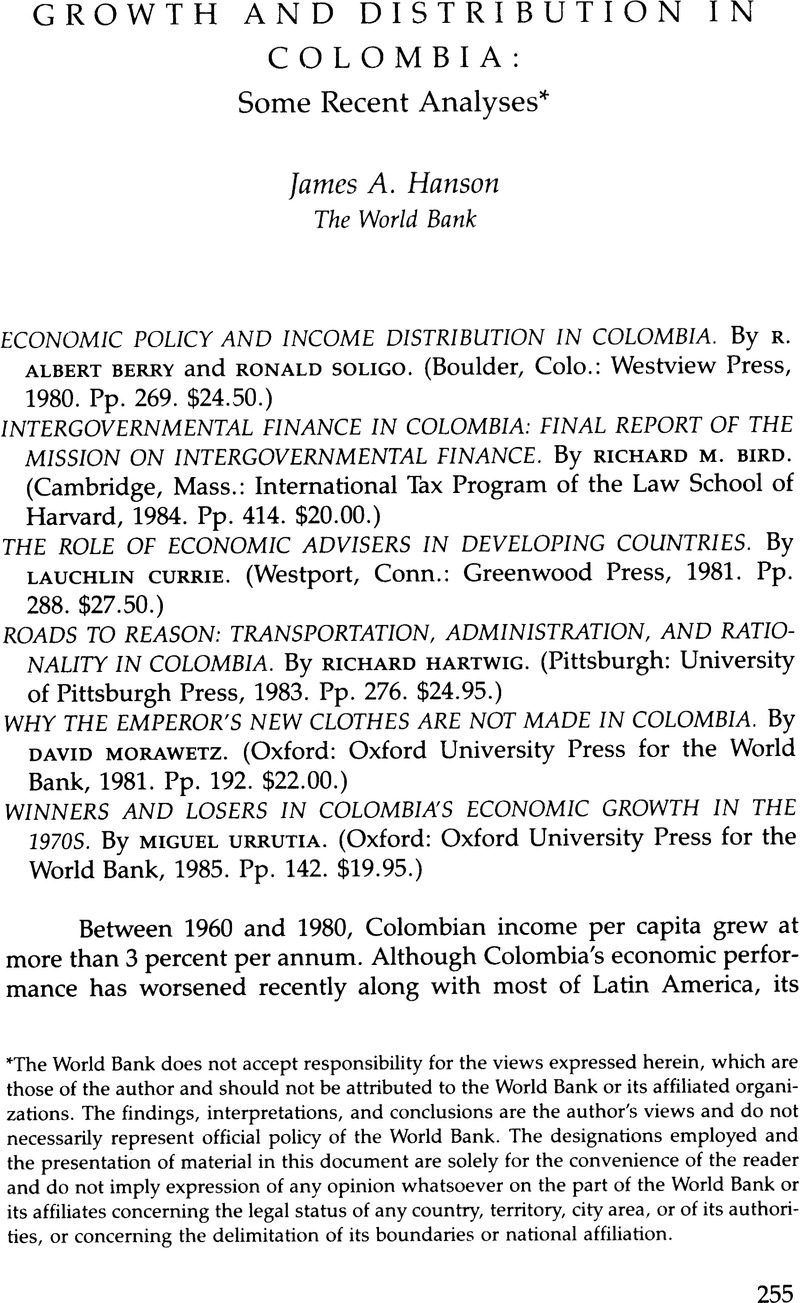Article contents
Growth and Distribution in Colombia: Some Recent Analyses
Review products
Published online by Cambridge University Press: 12 October 2022
Abstract

- Type
- Review Essays
- Information
- Copyright
- Copyright © 1987 by the University of Texas Press
Footnotes
The World Bank does not accept responsibility for the views expressed herein, which are those of the author and should not be attributed to the World Bank or its affiliated organizations. The findings, interpretations, and conclusions are the author's views and do not necessarily represent official policy of the World Bank. The designations employed and the presentation of material in this document are solely for the convenience of the reader and do not imply expression of any opinion whatsoever on the part of the World Bank or its affiliates concerning the legal status of any country, territory, city area, or of its authorities, or concerning the delimitation of its boundaries or national affiliation.
References
Notes
1. International Labour Organisation, Towards Full Employment (Geneva: ILO, 1970); and World Bank, Economic Growth of Colombia: Problems and Prospects (Baltimore: World Bank, 1972,.
2. International Bank for Reconstruction and Development, The Basis for a Development Program for Colombia (Baltimore: Johns Hopkins Press for the IBRD, 1950).
3. Lauchlin Currie, Operación Colombia (Bogotá: Cámara Colombiana de Construcción, 1961); also his Accelerating Development (New York: McGraw-Hill, 1966).
4. See Carlos Díaz Alejandro, Foreign Trade Regimes and Economic Development: Colombia (New York: National Bureau of Economic Research, 1976) and works cited therein.
5. Miguel Urrutia and R. Albert Berry, La distribución del ingreso en Colombia (Medellín: Editorial La Carreta, 1975).
6. For further discussion of these points, see Díaz Alejandro, Foreign Trade Regimes; Francisco Thoumi, “International Trade Strategies, Employment, and Income Distribution in Colombia,” in Anne Krueger, Hal Lary, Terry Monson, and Narongchai Akrasanee, Trade and Employment in Developing Countries, vol. 1, Individual Studies (Chicago: University of Chicago Press and NBER, 1981); and World Bank, Colombia: Economic Development under Changing Conditions (Washington, D.C.: World Bank, 1984).
7. Richard Musgrave and Malcolm Gillis, Fiscal Reform for Colombia (Cambridge, Mass: International Tax Program of the Harvard Law School, 1971).
8. See World Bank, Colombia, for additional recommendations on improving the budgeting and expenditure process.
- 3
- Cited by


